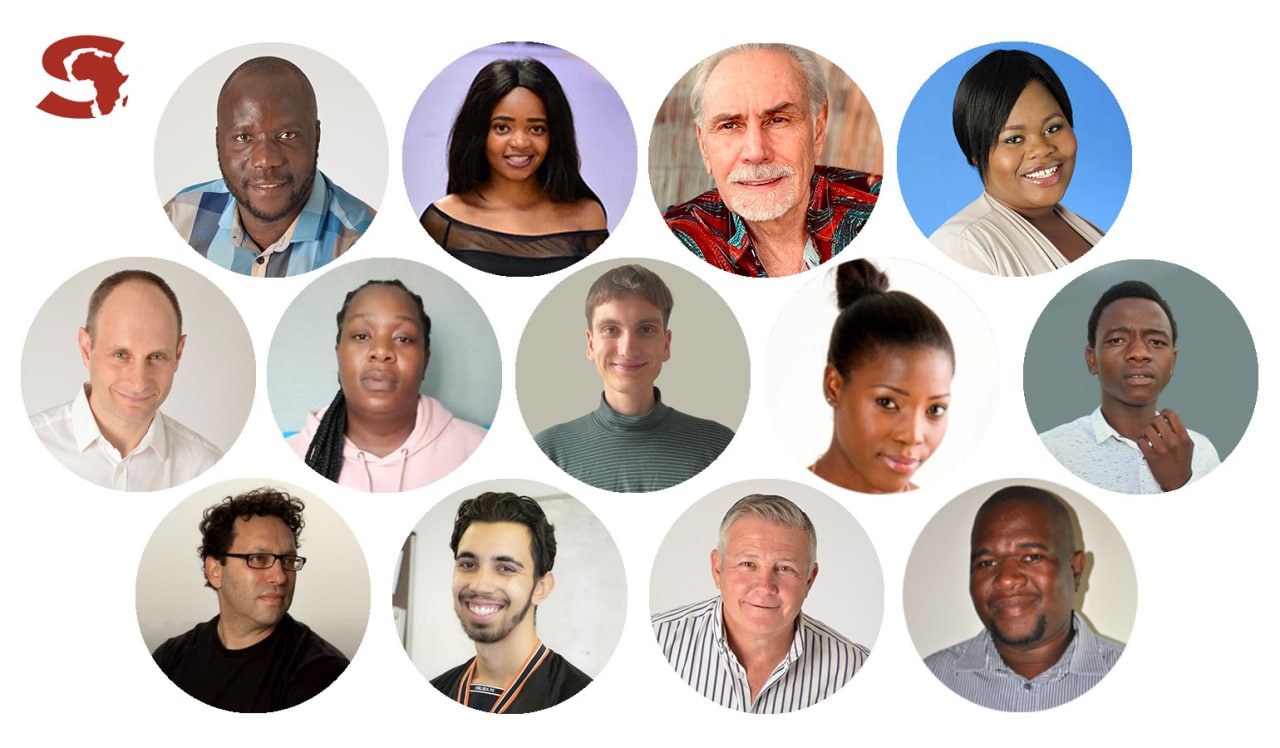Local Journalism Project Case Study: Scrolla (South Africa)
The backstory:
Scrolla was founded in 2019 by Mungo Soggot, an entrepreneur and former investigative journalist, along with a team of other seasoned South African journalists including Phillip van Niekerk, Everson Luhanga, Zukile Majova, and Toby Shapshak. Soggot noticed that many South African publications catered to wealthier people with tertiary education and wanted to provide content to those with lower income and education levels. Scrolla aims to reach more South Africans through innovative mobile-first publishing that allows cost-conscious readers to access a blend of punchy tabloid-style news and deeper investigations.
Audience:
Scrolla is a South African news startup with channels on major data-free messaging platforms that produces a blend of engaging, tabloid-style news and deeper investigative pieces for mobile phones in both English and isiZulu. Scrolla’s data-free messaging platforms allow them to reach people who don’t necessarily have the luxury of tertiary education or who have phones that “aren’t that posh”.
Value proposition:
Scrolla provides a combination of high-quality, tabloid-style news and investigations of both local and national interest and has broken major stories. Across channels, Scrolla has seen 400 percent audience growth in the last year alone. They cover what’s happening not only in local communities, but also the rest of the world so that readers can be informed about a number of different issues all from their mobile phones. The mobile revolution has made Scrolla’s mobile-first business model very successful — from the start, everything Scrolla has produced has been designed with mobile in mind.
Product and distribution:
Scrolla distributes its content through different mobile messaging channels — including MTN’s Ayoba channel and Moya.App — and its website. Scrolla also recently launched a daily isiZulu news podcast, Scrollacast. Recently, Scrolla has begun shifting more attention to a Data Lite version of Scrolla, where readers can access a version of Scrolla that’s both light on data and cost-free thanks to sponsorship from a mobile company. This is immensely important for cost-conscious users in a country that has some of the most expensive data rates in the world.
Who’s the team?
Scrolla consists of six full-time and six part-time team members, as well as freelancer networks. Scrolla’s founding team consists of veteran reporters, editors, and executives from the Mail & Guardian, a South African weekly newspaper based in Johannesburg. Scrolla has a full-time translation team, and has plans to bring on full-time Zulu reporters.
Business model:
Multiple revenue streams, including grants and sponsorship. Sponsorship from mobile companies allows Scrolla to produce its data-lite site, which allows readers to access news while avoiding high data charges.
The Future:
Scrolla plans to expand across the African continent and replicate its model in other markets. Soggot also discussed Scrolla’s plans to increase distribution through a data-light version of Scrolla so that even more people can read Scrolla’s content, as South Africa’s data costs are some of the highest in the world.
Ask them about:
How they are building data-light products to serve low-income audiences when data is cost prohibitive. Finding new ways to serve local audiences.
In their words:
“The thing we’re obsessed about is the mix…The ethos of our publication is that we all have, I suppose, highly political investigative anti-corruption instincts and roots. It’s the kind of journalism we’re most interested in, but our feeling is that you don’t get that kind of material out to a wide audience unless you mix it with other things. It’s all about the mix.”
“That’s the idea — that you use the technology to get access to the reporters who have intimate knowledge of remote communities and you package it in a way that is gripping to both those communities themselves, but also to a broader national audience.”
“You have the most unequal society in the world going through a very difficult political transition. And your gravitational pull towards horror is very strong, but the reality of South Africa is that in the middle of that challenge and suffering, there’s great joy and humor, and you’ve got to try and find that — you’ve got to try and reflect people’s lives.”
Source for information and views in this case study: Mungo Soggot, CEO, Scrolla.
[separator style_type=”none” top_margin=”15″ bottom_margin=”20″ sep_color=”#eae9e9″ border_size=”” icon=”” icon_circle=”no” icon_circle_color=”#ffffff” width=”” alignment=”center” class=”” id=””]
[content_boxes layout=”clean-horizontal” columns=”1″ icon_align=”left” title_size=”18″ backgroundcolor=”#98cbb8″ icon_circle=”” icon_circle_radius=”” iconcolor=”#98cbb8″ circlecolor=”#98cbb8″ circlebordercolor=”#98cbb8″ circlebordercolorsize=”” outercirclebordercolor=”#98cbb8″ outercirclebordercolorsize=”” icon_size=”” link_type=”” link_area=”” animation_delay=”” animation_offset=”” animation_type=”0″ animation_direction=”down” animation_speed=”0.1″ margin_top=”0″ margin_bottom=”0″ class=”” id=””]
[content_box title=”Scrolla: Coordinates” icon=”” backgroundcolor=”#98cbb8″ iconcolor=”#000000″ circlecolor=”#98cbb8″ circlebordercolor=”” circlebordercolorsize=”” outercirclebordercolor=”” outercirclebordercolorsize=”” iconrotate=”” iconspin=”no” image=”” image_width=”35″ image_height=”35″ link=”” linktarget=”_self” linktext=”” animation_type=”0″ animation_direction=”down” animation_speed=”0.1″]
[checklist icon=”fa-map-marker” iconcolor=”#000000″ circle=”no” circlecolor=”” size=”17px” class=”” id=””]
[li_item icon=”fa-globe”]Location: South Africa[/li_item]
[li_item icon=”fa-arrow-circle-right”]Website: scrolla.africa[/li_item]
[li_item icon=”fa-twitter”]Twitter: @ScrollaAfrica[/li_item]
[/checklist]
[/content_box]
[/content_boxes]
This story is part of IPI’s Local Journalism Project. The publication of these case studies – part of IPI’s wider work mapping, networking and supporting quality innovative media serving local communities – is supported by the Friedrich Naumann Foundation.
